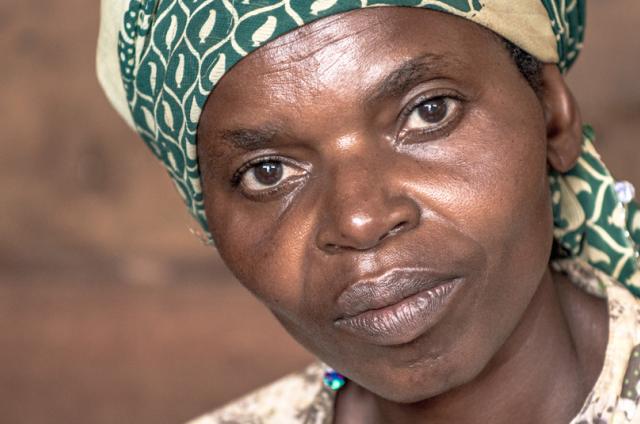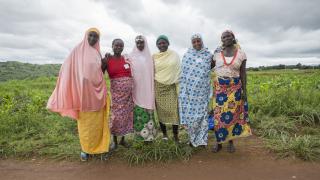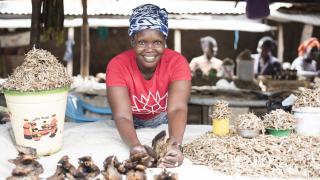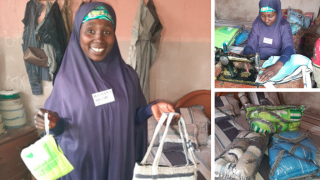Women suffer most from human trafficking—but they’re also the solution
Among the many threats and injustices women endure in war and conflict, human trafficking is one of the most devastating.
Human trafficking is prolific in conflict zones, where armed groups use it as a tool to spread terror and exploit those living in crisis and poverty. For women, trafficking often involves horrific sexual and gender-based violence.
In the conflict-affected communities where we work, chronic insecurity, economic pressures and lack of support networks expose women and girls to coercion and abuse. Some participants of our programme are survivors of human trafficking.
In coming together with other women in a safe, supportive environment, women can find a chance to heal. And when women heal, they see that they have power. They realise that power has sustained them and that they can grow it and share it with women around them. That’s what Honorata did.
Honorata’s story
Dozens of militia groups roam the forests and mountains of the Democratic Republic of the Congo, attacking villages and inflicting sexual violence on women to terrorise their communities. One of these groups kidnapped Honorata and held her captive for two years. They tied her up in public to be gang raped. When she finally escaped, Honorata's husband rejected her. Because of the deep stigma surrounding rape, women are forced to bear traumatic shame for what they have been through and are often punished and ostracised - making them vulnerable to further abuse.
Though Honorata eventually found refuge in a new home, rebels attacked her town, raping her again. They forced her daughter to watch.
Today, Honorata is a graduate of Women for Women International’s social and economic empowerment programme — and she is now a trainer for other women. After going through the training and learning skills to rebuild her life, understanding her rights, and building a strong support network with other women, Honorata found her voice to break the silence around sexual violence. She has become a fierce advocate for women’s rights and helps other women to unlock their power.
“Now, all I want to do is help other women rebuild their lives. I tell the women I train, look at me, I went through so much and now I am a professional trainer with a good salary,” Honorata said.
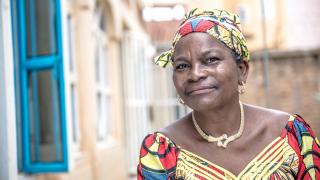
[The programme] has dared me to hope — of having a house, of living in peace, of reclaiming my dynamism.
A Global threat to women and girls
Around the world, 'women and girls are disproportionately affected by forced labour, accounting for 99% of victims in the commercial sex industry, and 58% in other sectors', according to the International Labour Organisation.
ISIS continues to target women in the Middle East. Rape and trafficking were used as tools of genocide against the Yezidi people, with many women and girls still missing.
In Nigeria, another violent extremist organisation is expanding: Boko Haram. Infamous for kidnapping 276 schoolgirls from Chibok in northeast Nigeria (112 girls still have not returned), the number of missing persons in northeast Nigeria continues to rise.
But extremist militant groups are not the only culprits. Desperate, unsafe conditions in refugee camps and other post-conflict settings create opportunities for criminals and abusers to prey on women and girls. Without economic opportunities or support networks, women are at greater risk of being tricked, coerced and trafficked into sexual slavery and other forms of exploitation. Forced marriage can be a form of human trafficking as well. 88 percent of people forced into exploitative marriages are women and girls, and 37 percent are below the age of 18.
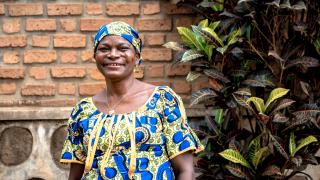
Now, all I want to do is help other women rebuild their lives.
Dignity, rights and power
When women have power, they change the world around them to make it better for themselves, for women around them, and for generations to come. They acquire skills and resources that make them resilient during crises. They are able to invest in their daughters' education, giving them opportunities and networks that reduce the risk of trafficking.Women like Honorata protect each other from isolation and abuse, and help fellow survivors to heal.
The high rates of women and girls suffering from human trafficking will not stop until the world recognises this injustice. And it will not stop until women and girls are regarded as people, with dignity and rights. It starts with investing in women’s power.
We are grateful to Players of People's Postcode Lottery for their generous support for our work with survivors of violence in the Democratic Republic of Congo. With their help, we have been able to reach more women who are vulnerable to trafficking and exploitation, and give them the tools to build a more secure future. Thank you to everyone who plays!
After two decades of progress and backlash, what’s next for the Women, Peace and Security Agenda?
subtitle:
Three recommendations to preserve progress and address ongoing challenges to women's rights in conflict settings.
Women Pave the Path to Peace in South Sudan
subtitle: As South Sudan marks Peace Agreement Day this year, it stands on the brink of another deadly crisis. But women hold the key to a brighter future.
As South Sudan marks Peace Agreement Day this year, it stands on the brink of another deadly crisis – but women hold the key to a brighter future.
Hassana's Story
subtitle:
When Boko Haram attacked their village in northern Nigeria, Hassana and her family were forced to flee. With support of UK aid from the UK government, she enrolled on our programme last November.

